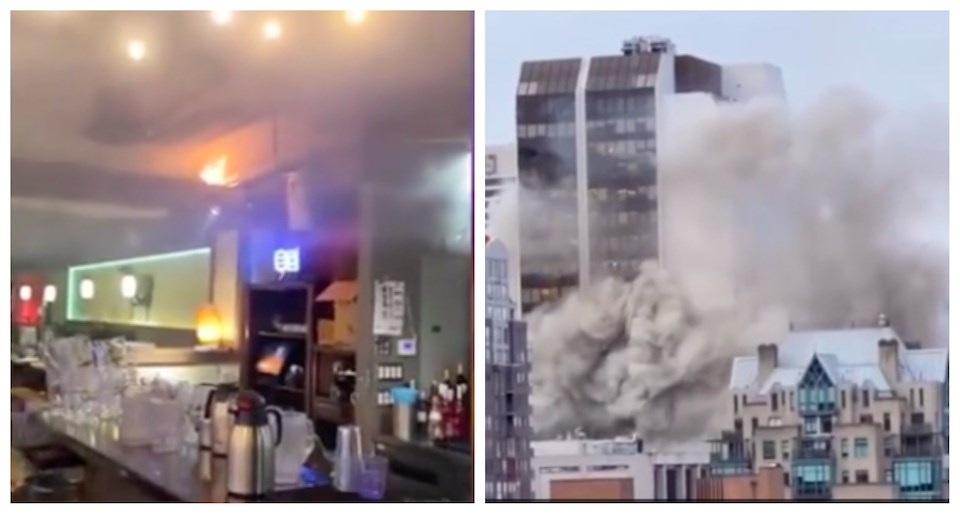Where there is smoke there is fire.
It's a proverb that has several connotations — but its original meaning is simple. When you see some smoke, there is a fire burning below it.
But does more smoke mean the fire is bigger and more destructive?
Â鶹´«Ã½Ó³»Fire and Rescue Captain Ferentz Schmidt says the amount of smoke a fire creates is not an indicator of how rapidly it will spread or how much damage it could cause. In fact, some less destructive fires create a great deal of it.
On Thursday (March 24) night, a blaze that broke out in a Japanese Restaurant in downtown Vancouver sparked concern that neighbouring buildings would also catch fire. Judging by videos of the veritable plumes of smoke furling out of the business, it looked decidedly destructive and dangerous.
But the fire captain tells Â鶹´«Ã½Ó³» in a phone interview that the fire did not cause a great deal of damage.
"I'm looking at the restaurant frontage right now. It looks like it could be open tomorrow for business," he describes. "There's very, very little damage to the restaurant itself.
"External damages, zero."
Evidence suggests the fire was accidental and caused by an excessive build-up of grease around the barbecue elements, explained Schmidt.
While the individual cooking element on the table ignited the fire, the build-up of grease was the culprit, he clarified. The fire was then contained to the venting system and did not spread to the rest of the structure.
The restaurant could be operational soon but the owners will need to replace the vent system before that happens. The fire captain says this incident underscores the importance of a maintenance schedule to keep your business or home fire-safe.
"Whenever there's a fire in a kitchen it can get much worse. This was a very good outcome," he says.
While firefighters were able to bring this blaze quickly under control, others spread fast. "In North America, someone dies in a fire every 80 minutes, and someone is treated for a burn every 15 seconds," states Â鶹´«Ã½Ó³»Fire.
The best fire management is fire prevention. Protect yourself and your loved ones by preventing fires and learning survival skills.
How to prepare for a fire
- Make sure your smoke alarms are properly placed and functioning and test them twice a year.
- Plan ahead with your family: create a fire escape plan, identify a common meeting area, and practice your plan so that everyone knows what to do.
- Consider installing a spark arrestor on your chimney, and keep your chimney, roof surfaces, and gutters clean.
- Install flexible piping on gas appliances where possible to avoid gas leaks that could cause fires.
- Know how to turn off the gas supply to your house.
- Discard worn-out electrical cords and plugs.
- Have wiring inspected if you live in an older house or apartment to prevent electrical fires.
Find out more about fire safety with .
With files from Alanna Kelly




